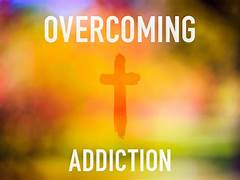Christ’s Love as a Healing Force: Overcoming Addiction Through Faith

Addiction is one of the most challenging battles a person can face. It not only enslaves the body and mind but also damages relationships, self-worth, and the spirit. While many approaches to recovery focus on physical and psychological healing, addiction is also deeply tied to spiritual wounds. For those seeking true freedom and restoration, Christ’s love serves as a powerful healing force that offers transformation and renewal.
The Deep Wounds of Addiction
Addiction is more than a bad habit; it often stems from deep emotional and spiritual pain. Many people turn to substances or destructive behaviors to numb feelings of inadequacy, escape trauma, or fill an inner void. This void is often a spiritual longing for connection and purpose—something only God can truly satisfy.
The nature of addiction is deceptive. While it promises relief or comfort, it ultimately creates a cycle of dependency, guilt, and shame. These feelings can leave individuals believing they are unworthy of love or incapable of change. However, Christ’s love cuts through this despair, offering hope and healing.
The Healing Power of Christ’s Love
Christ’s love is a healing force because it addresses the root of human suffering: separation from God. When Jesus walked on earth, He demonstrated His love through acts of healing and compassion, reaching out to those who were outcast, broken, or trapped in sin. His actions revealed that no one is beyond the reach of His love.
The Bible reminds us in John 3:16, “For God so loved the world that He gave His one and only Son, that whoever believes in Him shall not perish but have eternal life.” This unconditional love is a cornerstone for those seeking freedom from addiction. It assures us that God’s love is not based on our performance or failures but on His unwavering grace.
When individuals accept Christ’s love, they experience a transformative power that brings healing to every aspect of their lives. His love not only forgives past mistakes but also renews the heart and mind, replacing feelings of shame with acceptance and hope.
Overcoming Addiction Through Faith
Faith in Christ offers a unique path to overcoming addiction. Unlike methods that rely solely on willpower or human intervention, faith invites God’s divine power into the recovery process. Through prayer, Scripture, and surrender, individuals can find the strength to face their struggles and trust God to lead them toward freedom.
In Matthew 11:28, Jesus says, “Come to me, all you who are weary and burdened, and I will give you rest.” This invitation is especially powerful for those weighed down by addiction. Christ offers rest for the soul and strength for the journey, reminding us that we don’t have to carry our burdens alone.
Faith-based recovery often involves cultivating a relationship with Christ through daily practices. Prayer becomes a lifeline, a way to connect with God and seek His guidance. Reading Scripture reveals God’s promises of healing and freedom. Joining a community of believers provides encouragement and accountability, helping individuals remain steadfast in their journey.
Breaking Chains and Finding Renewal
Christ’s love not only breaks the chains of addiction but also replaces them with a new identity. Those who once saw themselves as addicts or failures can now see themselves as beloved children of God. This shift in identity is crucial for long-term healing, as it changes the way individuals perceive themselves and their purpose.
The love of Christ also brings renewal to broken relationships. Addiction often damages trust and creates conflict, but Christ’s forgiveness and grace empower individuals to seek reconciliation and restoration with others.
Conclusion
Christ’s love is a powerful healing force that offers hope, freedom, and renewal to those struggling with addiction. By placing faith in Him, individuals can find strength to overcome their struggles and embrace a life of wholeness and purpose. Addiction is not the end of the story; through Christ’s love, it becomes a chapter of transformation, leading to a life redeemed and restored.